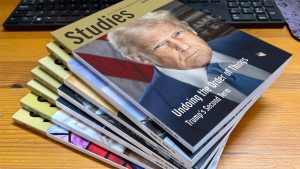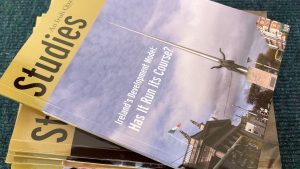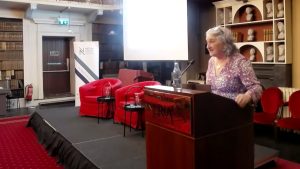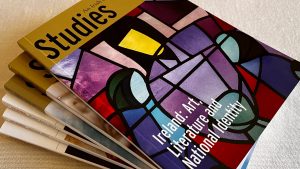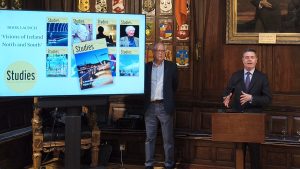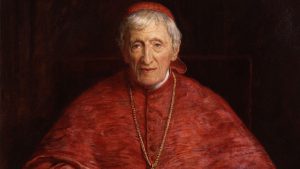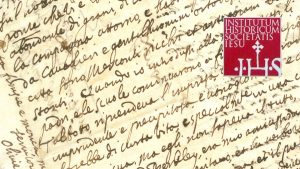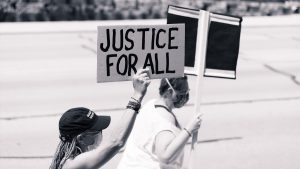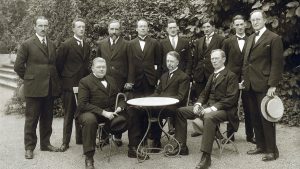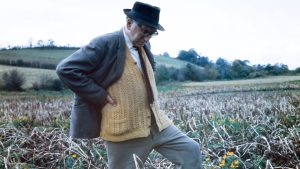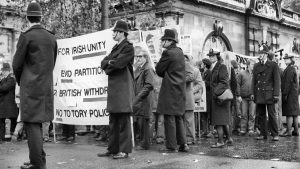Thinking ahead to Ireland’s future

DERMOT ROANTREE [adapted from Studies editorial] :: Sixty years ago, in the summer 1963 issue of Studies, then-editor Roland Burke Savage SJ posed a question: ‘What sort of Ireland do we want to see here in ten years’ time?’ There was good reason to ask the question then – good reason too that it would be asked by the editor of Studies. 1963 marked the end of the five-year First Programme for Economic Expansion, a watershed time for the nascent republic. Ireland was leaving behind the isolationism of the de Valera years – the heightened anxiety about national sovereignty and self-determination. Instead, it was opting for economic and cultural openness to the world beyond and a willingness to enter into arrangements of shared sovereignty if peace or prosperity required it. And a significant portion of the intellectual groundwork for this shift was laid in the pages of Studies. Apart from John Maynard Keynes’s milestone lecture on national self-sufficiency, published in the summer 1933 issue of Studies, this journal also played host on many occasions to path-breaking essays on economics and social policy by such authorities as George O’Brien, Patrick Lynch, Ken Whitaker, Garret FitzGerald, James Meenan, and Donal Barrington. Thanks to them, a new vision of Ireland ‘[taking] her place among the nations of the earth’ took shape.
De Valera had consistently reduced the issue of Ireland’s involvement in supranational entities to one question: ‘In what way, either by joining or not joining, are we most likely to preserve the independence of this country?’ (Dáil Debates, Thursday, 25 July 1946: Motion on Membership of the United Nations Organisation) He had an enduring conviction that to relinquish any degree of sovereignty was to belittle the historic struggle for freedom. By 1963, however, such an attitude was no longer persuasive. In 1955 Ireland joined the UN, and six years later it applied to join the European Economic Community, precursor to the European Union. When eventually, in 1972, a referendum was held on the issue of joining the EEC, a full 83% of the very high turnout voted in favour. Garret FitzGerald had argued in a lengthy essay in Studies (spring 1962) that joining Europe did not mean compromising the country’s independence, even if it did mean accepting certain limits on its sovereignty. Ireland, he wrote, could negotiate its entry as a sovereign state, secure the best terms of membership it could for its people, and combine with other free nations to create a new European concept. This was the viewpoint that won the day in 1972. So, on 1 January 1973, at the end of the ‘ten years’ of his question, Fr Burke Savage got an important part of his answer when Ireland became a member state of the Community.
It was clear from Fr Burke Savage’s essay, however, that he was more concerned with values than with constitutional and economic aspects of Ireland’s future. He sang the virtues of a civic life animated by people living out Christian principles, even if he lamented the failure of the Irish to attain this standard; they were too often individualistic, disrespectful of the rights and freedoms of others, and indifferent to their civic duties. Garret FitzGerald too, when he responded to Fr Burke Savage in the winter 1964 issue of Studies, drew attention to the country’s Christian tradition, but his main concern was that the thinking of the Catholic Church in Ireland had lagged far behind Catholic thought elsewhere. Particularly, sociology in this country was dominated by over-theoretical clerics who failed to study actual social situations. What was needed was a new theoretical framework, one that combined a basic Christian philosophy with both the socialist and the liberal traditions so as to support authentic empirical investigation. Perhaps this essay could count as a remote origin of the ‘constitutional crusade’ of the 1980s.
On one front, FitzGerald noted, Ireland did not lag behind other Catholic countries. In its constitution it had opted for a formal enunciation of the liberal principle of the separation of church and state rather than seek any kind of confessional arrangement. This was true. The recognition of the ‘special position’ of the Catholic Church in Article 44 of the Constitution fell well short of what integralist Catholics considered ideal, and few tears were shed by bishops, priests or lay Catholics when it was excised after another constitutional referendum, in December 1972. But that sub-section had had a symbolic value – as did its removal from the constitution on 5 January 1973, just four days after Ireland entered Europe: a more pluralist constitution for membership of a more pluriform community.
That was fifty years ago this January. It seems barely possible to overstate the social and cultural distance that separates the Ireland of those days from the Ireland of today. Since joining Europe, Ireland has become a prosperous, multicultural, liberal state, strong in the technological and scientific sectors, significant in international agencies, rich and varied in its cultural and academic output – in short, as Ursula von der Leyen told the Houses of the Oireachtas recently, an EU success story. And not least among the extraordinary transformations the country has witnessed is, to use Louise Fuller’s phrase, ‘the undoing of Catholic culture’. Could there have been a more devastating undoing? The last fifty years have taken us from one horror story to another in a seemingly endless series – from the Brendan Smyth affair to ‘Dear Daughter’ to ‘States of Fear’ to any number of revelations in the works of survivors, journalists, and historians. And then the reports: Ferns, Ryan, Murphy, Cloyne, McAleese, and the report of the Mother and Baby Homes Commission of Investigation. One thing is clear: the extent to which the people of Ireland – priests and religious in particular – had failed to live out Christian principles greatly exceeded Fr Burke Savage’s worst imaginings.
Where does all this leave us? How does it impact on our thoughts about the future? We might revive Fr Burke Savage’s question, somewhat modified perhaps: Given our successes and our failures in recent decades, what sort of Ireland do we want at the end of this decade, and, more importantly, what principles and values can we call on as we chart our path there? Many existential challenges merit attention. Climate change and sustainability, national sovereignty and international responsibility, Irish language and culture, and social justice in the face of scandalous inequalities all come quickly to mind. But so too does the more fundamental issue of worldviews and values. From what sources can we derive our guiding notions of human dignity, human rights, the common good, and what Pope Francis has called ‘integral ecology’?
In particular, under what conditions could we turn again to the rational content of a Christian anthropology? It may be the case that the Church in Ireland has tended to be excessively ‘Hellenized’ – rationalist, that is, unhistorical, and inclined to legitimate the ruling authority. But there is surely something in Johann Baptist Metz’s charge that such a configuration amounts to an alienation from the origins of Christianity, the ‘spirit of Israel’, which holds fast to the memory of human suffering, interrupts the dominant narratives that conceal it, and cries out in demand for universal justice. Is there not something in this more Judaic dimension of Christianity that can serve Ireland well in the years ahead? In the view of Jürgen Habermas, religion succeeds where practical reason fails in sustaining in the minds of secular subjects ‘an awareness of the violations of solidarity throughout the world, an awareness of what is missing, of what cries out to heaven’. If this is so, should we not revisit the question of what religious discourse, shorn of its intimacy with power, can offer to the public sphere in Ireland? That seems to be a conversation worth having.


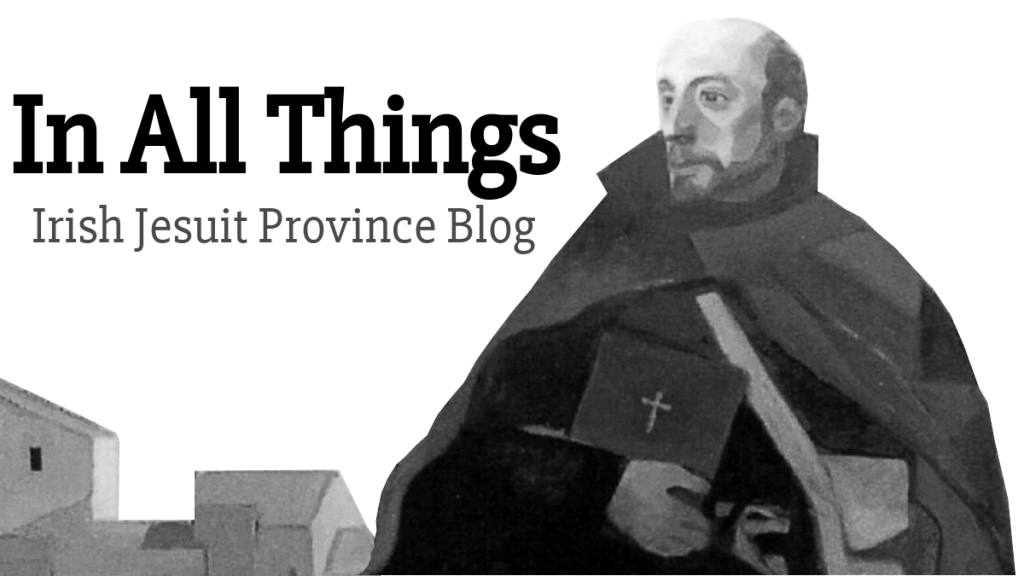
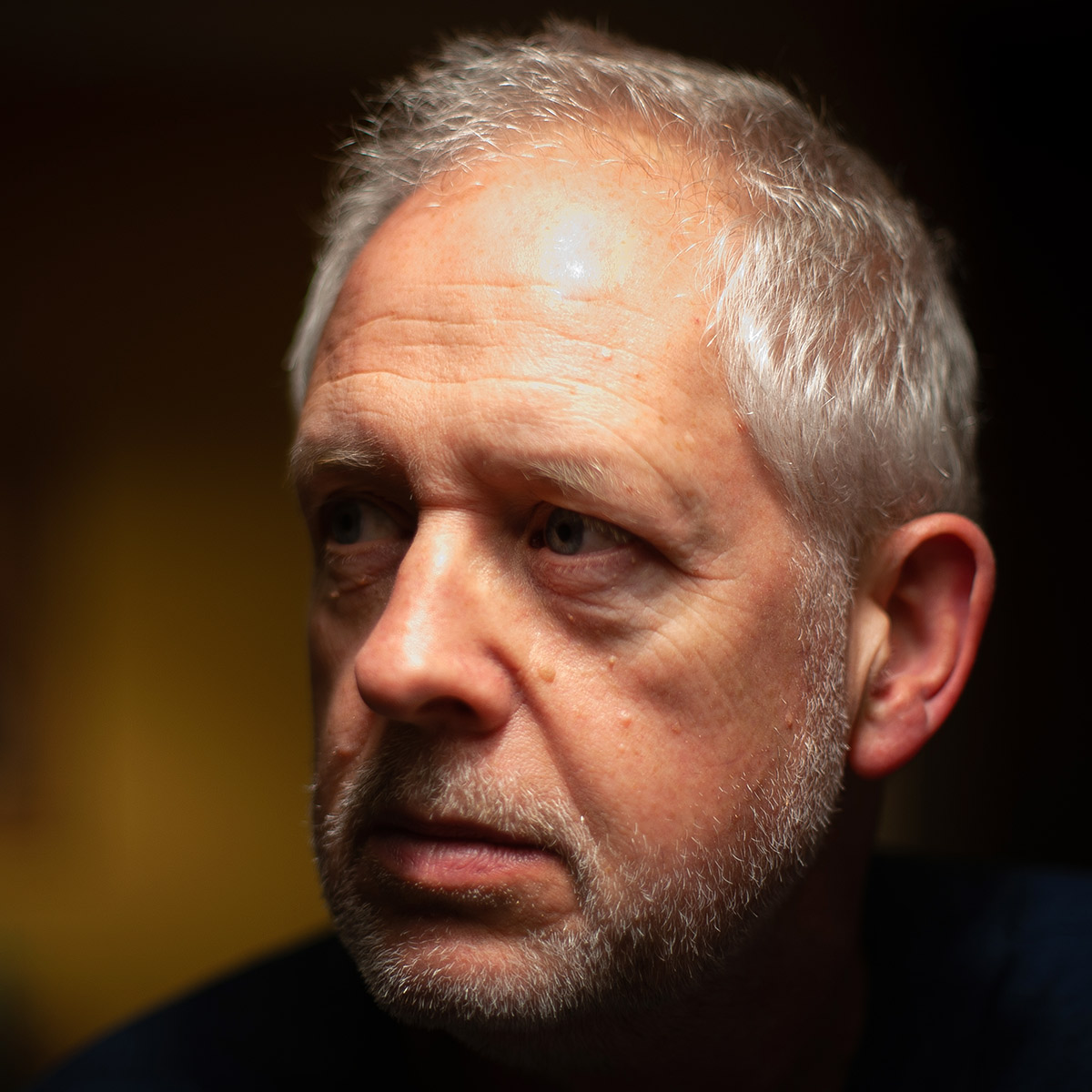 Dermot Roantree is content editor with Irish Jesuit Communications and he is also the editor of Studies: An Irish Quarterly Review. He has a doctorate in Modern History and many years of teaching and of e-learning projects behind him. He is married with two children.
Dermot Roantree is content editor with Irish Jesuit Communications and he is also the editor of Studies: An Irish Quarterly Review. He has a doctorate in Modern History and many years of teaching and of e-learning projects behind him. He is married with two children.